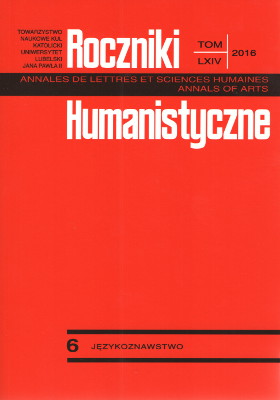Buiten de literaire canon: Literatuur van vrouwen uit de arbeidersklasse en modernisering van Zuid-Afrika in de eerste helft van de 20e eeuw
Outside the literary canon: Literature of working class women and the modernisation of South Africa in the first half of the 20th century
Author(s): Małgorzata DrwalSubject(s): Language and Literature Studies, Studies of Literature, Other Language Literature
Published by: Towarzystwo Naukowe KUL & Katolicki Uniwersytet Lubelski Jana Pawła II
Keywords: trade union press; women’s writing; literary canon; Klerewerker/Garment Worker; socialism
Summary/Abstract: This article focuses on literary texts published in the Klerewerker/Garment Worker, the periodical of the Garment Workers’ Union. The GWU which was an organisation consisting mainly of Afrikaner female workers, was established in 1930 in Johannesburg, against the background of economic and social changes in South Africa, which can be collectively described as modernisation. It is argued that the Klerewerker/Garment Worker, while striving to spread the ideology of socialism amongst working class women, has created — by modifying the Volksmoeder [Mother of the Nation] ideal rooted in the Afrikaner nationalist tradition — a modern model of femininity. Moreover, the literary forms employed in the periodical constituted a parallel line to the development of the canonical literature in Afrikaans, even though they were discredited by critics as socialist propaganda.In the analysis of selected short stories and dialogues written by GWU activists the focus is placed on recurring motifs and literary conventions applied by the authors and aims they tried to achieve. It is concluded that these texts can be viewed as a counter-discourse to the dominant unifying attempts in the Afrikaans literature created in the 1930s and 1940s. The discussed instances of working class literature, free of limitations imposed by the dominant middle class literary taste, can be viewed as a form which temporarily offered a relative independence of expression to the Afrikaner women. Furthermore, these texts give an insight into how movements foreign to the canonical literature of the period, such as socialism and feminism, were present in the cultural and social debate.
Journal: Roczniki Humanistyczne
- Issue Year: 64/2016
- Issue No: 5S
- Page Range: 179-192
- Page Count: 14
- Language: Dutch

